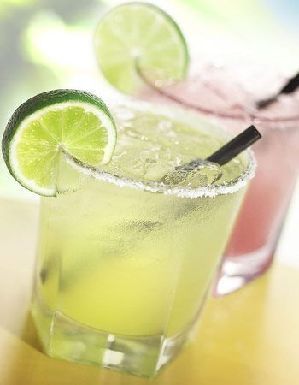摘要:英国一项最新研究显示,经常喝含糖饮料会降低舌头味蕾对甜味的敏感度,很容易使人摄入更多的糖,从而导致肥胖风险上升。
英国班戈大学等机构的研究人员在《食欲》上报告说,一些志愿者参与的评估饮料甜度的试验结果显示,那些经常喝含糖饮料且体型较胖的人,对同一种饮料甜度的评估等级要低于体型正常者的评估等级,这说明他们味蕾对甜味的敏感度已经下降。
研究人员还分析了受试者对甜食的爱好程度,结果显示那些体型较胖者在潜意识中就倾向于选择更甜的食物。领导研究的汉斯·彼得-库比斯说,这说明吃太多糖可能形成了一种恶性循环,即经常吃糖会导致味蕾对甜味的敏感度下降,吃同样多的糖带来的满足感下降,潜意识里就会要求吃更多的糖。其结果就是摄入糖分太多导致肥胖。
本次研究还显示,这个恶性循环很容易形成。研究人员请一些过去不怎么喝含糖饮料的人参与了一个试验:让他们每天喝约2罐含糖饮料,结果一个月后,这些人的味蕾对甜味的敏感程度明显下降,出现想多吃甜食的倾向。
研究人员建议,如果不想变得太胖,应该尽量不喝含糖饮料或不吃甜食,特别对儿童来讲,在他们口渴时,家长最好提供白水而不是含糖饮料。

生物探索推荐英文原文:
Taste perception and implicit attitude toward sweet related to body mass index and soft drink supplementation
Abstract
These studies examined the differences in sweet taste perception and implicit attitude toward sweet between normal-weight and overweight/obese adults; and tested the effects of soft drink consumption on sweet taste, explicit preference and implicit attitude toward sweet in normal-weight subjects. In study 1, normal-weight (n = 22) and overweight/obese (n = 11) adults were assessed for sweet taste intensity and pleasantness. Implicit attitude toward sweet was assessed by implicit association test (IAT). In study 2, normal-weight, lightly active adults (n = 12) underwent one month soft drink supplementation (≈760 ml/day). This increased their daily carbohydrate intake by 2.1 ± 0.2 g/kg body weight. Sweet taste perception, explicit preference and implicit attitudes to sweet were assessed. In both studies salty taste was also assessed as a contrasting perception. Overweight/obese subjects perceived sweet and salty tastes as less intense (−23% and −19%, respectively) and reported higher IAT scores for sweet than normal-weight controls (2.1-fold). The supplementation changed sweet intensity/pleasantness ratings and it increased explicit preference (2.3-fold) for sweet in a subgroup of initial sucrose-dislikers. In conclusion, overweight/obese individuals are more implicitly attracted to sweet. One month of soft drink supplementation changed sweet taste perception of normal-weight subjects.
Highlights
► Overweight/obese individuals (Ov/Ob) perceive sweet and salty as being less intense compared to normal-weight (NW) persons. ► Ov/Ob subjects revealed a trend toward higher pleasantness scores for sweet taste. ► Ov/Ob individuals have a stronger implicit attitude toward sweet food. ► Four week soft drink supplementation altered sweet taste in NW-subjects. ► Soft drink supplementation increased preference for sweet in sucrose dislikers.
Keywords: Sweet taste; Sugar intake; Leptin; Obesity; IAT; Sugary drinks







